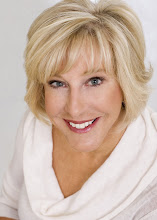
Yesterday I had the great fortune to work with 27 amazing women entrepreneurs from developing nations around the world through a Vital Voices partnership with Fortune and the U.S. State Department. Our session was the kick-off of an intense month in the U.S. for each of them as they work with high-powered mentors in their fields. One of the great strengths of the Vital Voices leadership model is that it emphasizes their responsibility to share what they learn when they return home and mentor other women in their own countries.
Each of these women has a unique and compelling story, whether she's from Kazakhstan, Bosnia, Burma, or Nigeria, and whether she's founded a nonprofit to help poor children, a mining company, or her own financial services organization. What was most striking, however, was how much these women, meeting one another for the first time, had in common. Each had strongly-held values about honesty, integrity, and helping others. Each felt called to "do more," had overcome extreme adversity, and yet remained enthusiastically optimistic.
These women are building a network among themselves and with the U.S. leaders they meet over the coming weeks that will expand their connections in unimaginable ways. Vital Voices has wisely applied the research on how "weak ties"--those we connect with beyond our immediate circle, are often the source of new ideas and opportunities.
These courageous women are the embodiment of connective change. In our opening session, they identified the traits of the best social systems they have experienced, and as you'd guess, in spite of their different backgrounds, they agreed on what makes a connective organization on any continent and in any industry--one characterized by trust, cooperation, encouragement, accountability, fairness, clear goals, and positive feedback.
I can hardly wait to see what impact each of them has as a result of her experiences in this program. Already successful, each will blossom in unexpected, positive ways. Thank you, Vital Voices, for again giving me the privilege of working with your amazing participants in this program.






